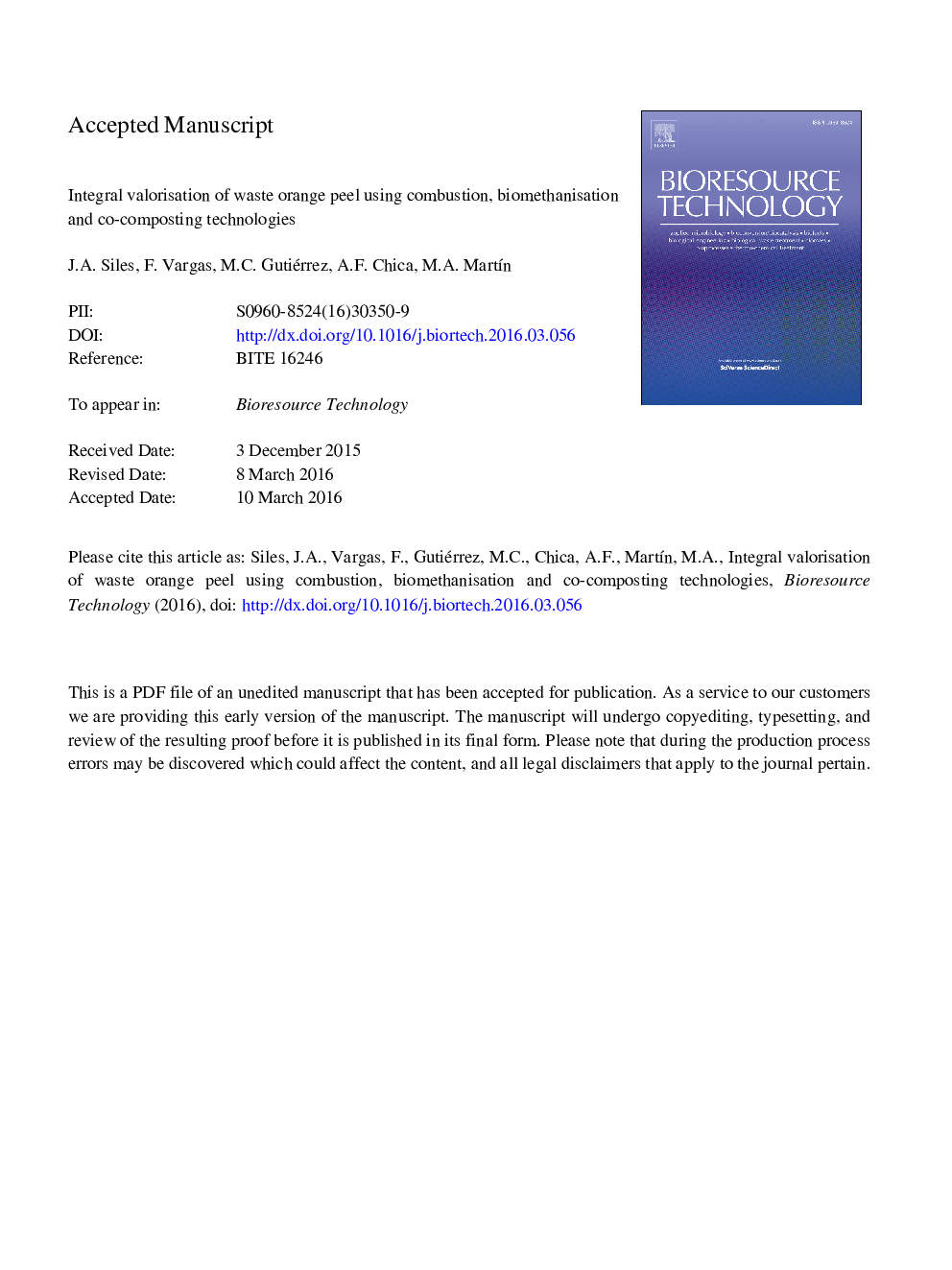| Article ID | Journal | Published Year | Pages | File Type |
|---|---|---|---|---|
| 7071826 | Bioresource Technology | 2016 | 38 Pages |
Abstract
Although recent research has demonstrated that waste orange peel (WOP) is a potentially valuable resource that can be transformed into high value products, heat generation, biomethanisation and composting might be considered the most feasible alternatives in terms of yield. This study revealed that WOP can be successfully valorised through combustion. However, a previous drying step, which generates hazardous wastewater, is required and harmful NOx are emitted with the flue gases. In contrast, a high yield of renewable methane (280Â LSTPCH4/kg added COD, chemical oxygen demand) and an organic amendment can be obtained through the thermophilic biomethanisation of WOP following the removal of valuable essential oils from the peel. Co-composting of WOP combined at different proportions (17-83%) with the organic fraction of municipal solid waste (OFMSW) was also demonstrated to be suitable. Moreover, a 37% reduction in odour generation was observed in co-composting of WOP compared to single composting of OFMSW.
Keywords
Related Topics
Physical Sciences and Engineering
Chemical Engineering
Process Chemistry and Technology
Authors
J.A. Siles, F. Vargas, M.C. Gutiérrez, A.F. Chica, M.A. MartÃn,
